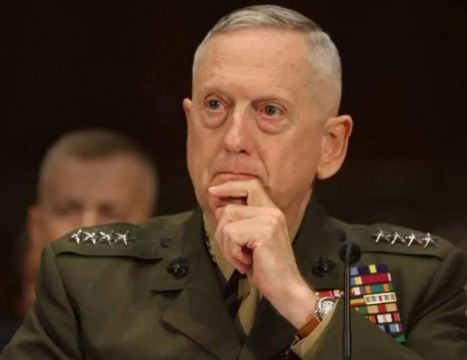The visit of U.S. Secretary of Defense James Mattis to South Korea on Feb. 1 and Japan on Feb. 3 (Mattis' first foreign trips since assuming office) underscores his view the U.S. needs to counterbalance China's unbridled military expansionism in Asia.
Mattis will meet with South Korean Minister of National Defense Han Min Koo and other officials to discuss a wide range of security issued, chief among which will be the deployment of the first U.s. Army THAAD battery in May.
THAAD stands for Theater High Altitude Area Defense system and is an anti-missiles system meant to shoot down ballistic missiles such as those tested by North Korea last year. South Korea has no home grown defense against ballistic missiles, hence their request the U.S. deploy THAAD on their shores.
Mattis will then leave for Japan and hold talks with Japanese Minister of Defense Tomomi Inada and other officials in Tokyo. Japan is at the forefront of confronting China's military adventurism and is beefing-up its military in Japan's largest post war military build-up.
The trip will "underscore the commitment of the United States to our enduring alliances with Japan and the Republic of Korea, and further strengthen U.S.-Japan-Republic of Korea security cooperation," said the Pentagon.
Mattis' trip also means former president Barack Obama's "Pivot to East Asia" remains a key American strategy. It's also meant to reassure jittery Asian allies the U.S. remains deeply committed to Asia despite the foolish decision of President Donald Trump in withdrawing the U.S. from the Trans-Pacific Partnership (TPP).
Japan completely supports the TPP, and defense ministers from around the region are concerned that without the TPP, the U.S. will have less power in the Pacific. China will win from Trump's infantile decision to abandon the TPP.
During his confirmation hearings, Mattis called for boosting U.S. naval power by building more warships and deploying more advanced technologies in light of Beijing's increasing and unrelenting aggression in the South China Sea.
"While our efforts in the Pacific to keep positive relations with China are well and good, these efforts must be paralleled by a policy to build the counterbalance if China continues to expand its bullying role in the South China Sea and elsewhere," he said.
Mattis once said China must be denied "veto power" over the territorial claims, security and economic conditions in the Pacific.
He also called on the United States, especially the Congress, "to adapt to changing circumstances, to come out now from our reactive crouch and take a firm, strategic stance in defense of our values."
Congress must play a key role in developing this "refreshed national strategy" that will guide the military forward as it faces down the United States five greatest threats: Russia, China, Iran, North Korea and Violent Extremist Organizations (VEOs).



























